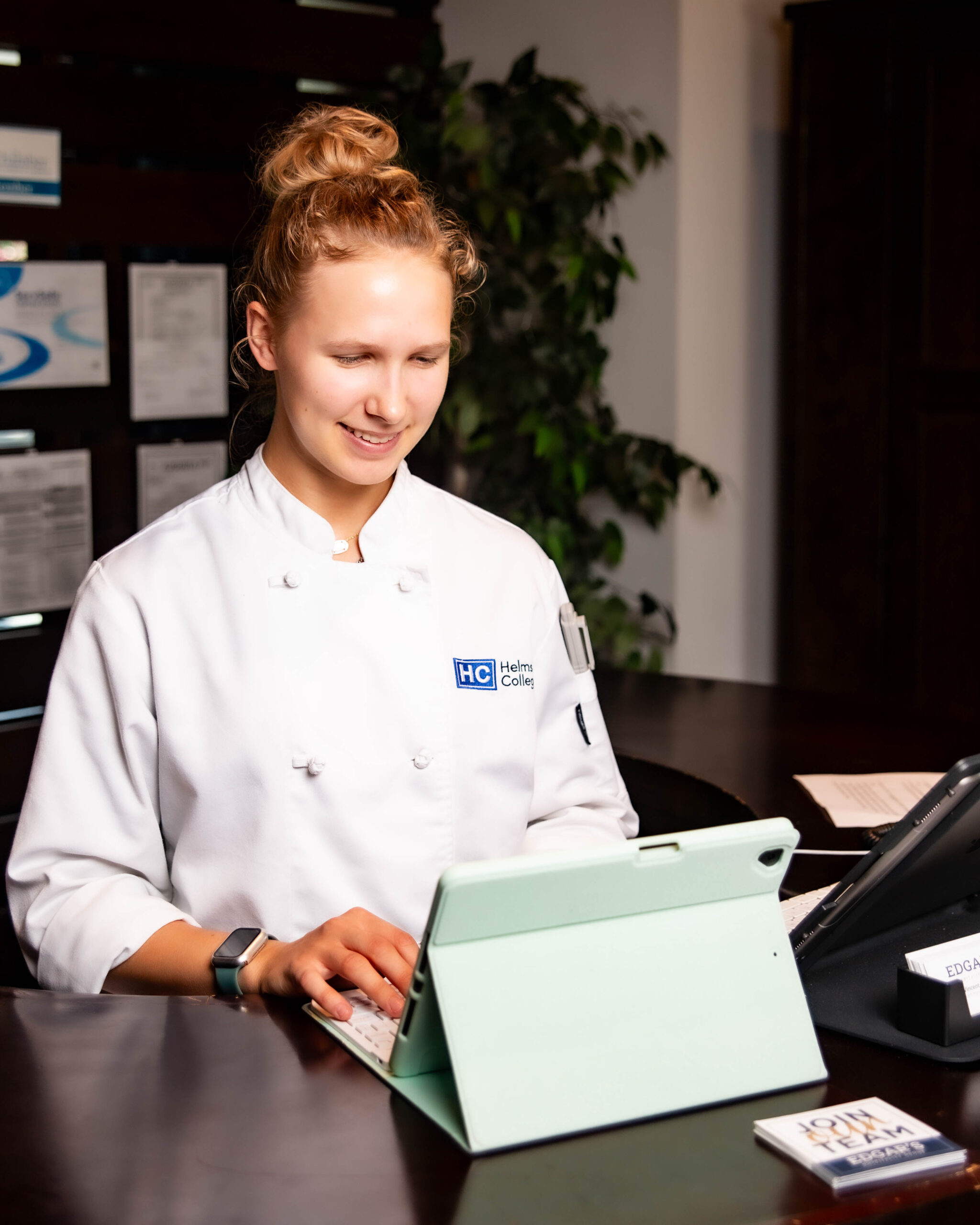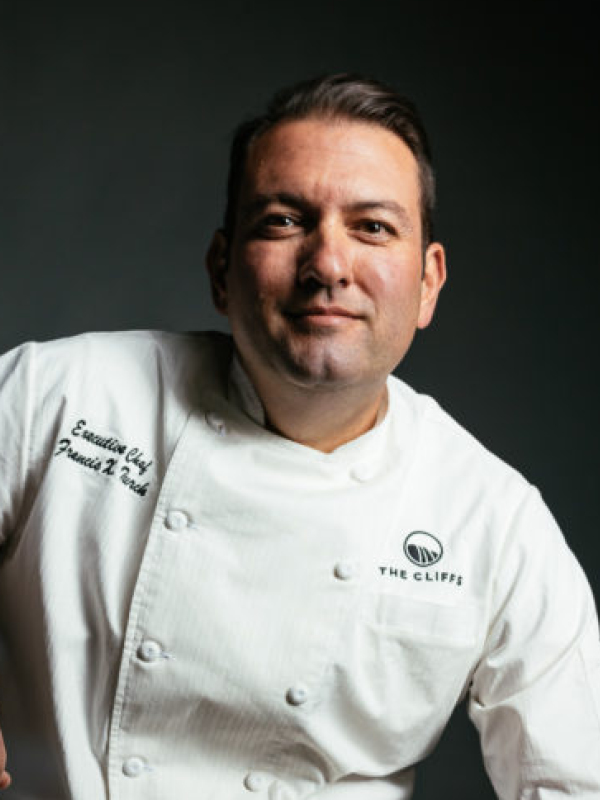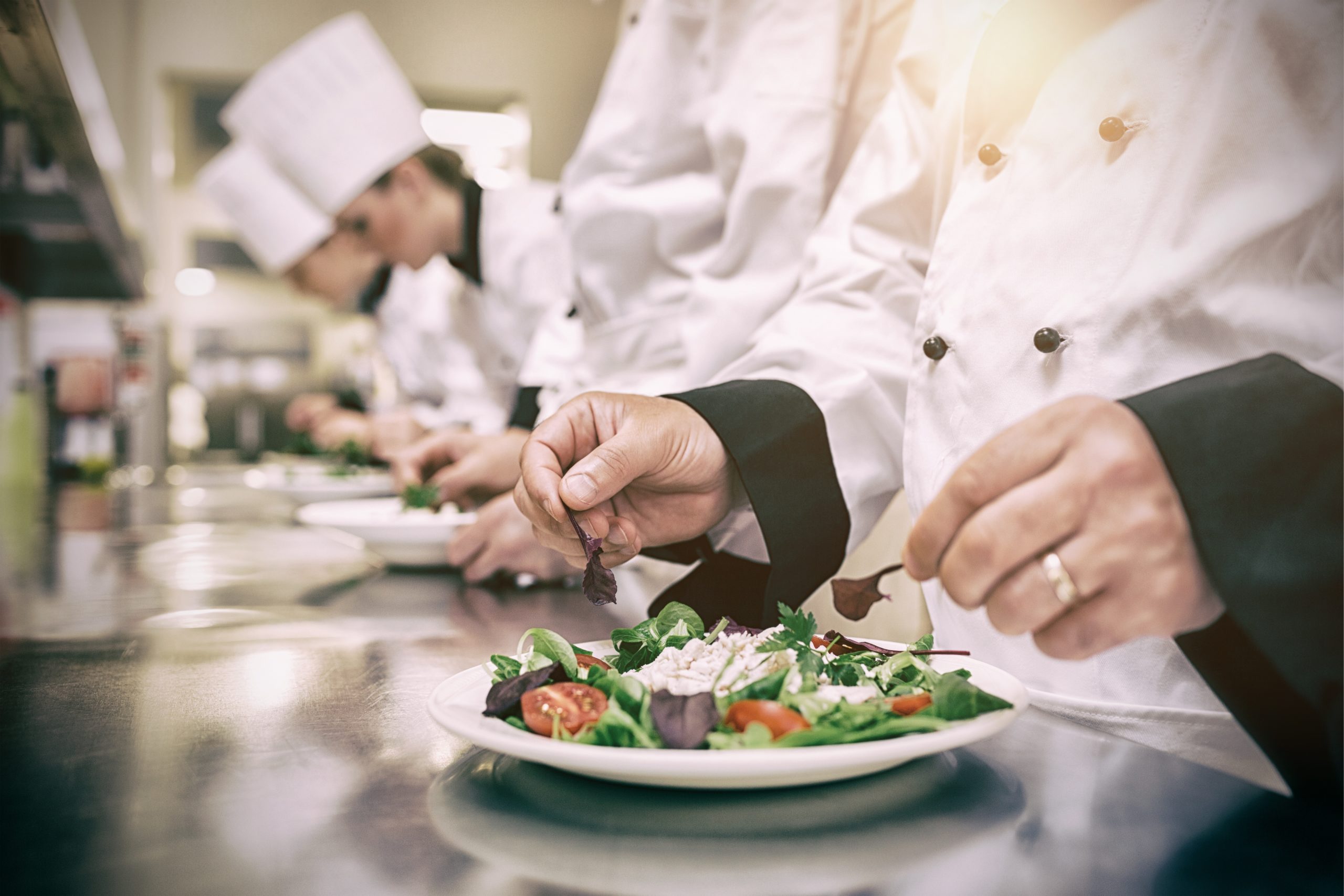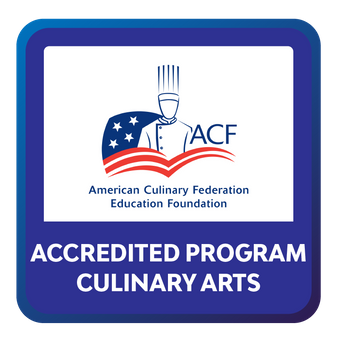Culinary and Hospitality Training in Macon & Augusta, GA
Hands-On Learning
Be prepared for your work in the real world with hands-on learning.Certified in 12 Months
A career as a culinary pro could be yours in just 12 months. Experience the Helms College difference.Career Training
Hands-on classroom and real-world training from passionate teachers.Job Placement
Helms College graduates have a 77% job placement rate in their field of study within 6 months of graduation.Request Free Information
We are here to help. Fill out the form and we will contact you to provide information about furthering your education.
The Helms College Difference
Helms College helps people discover and develop their gifts through education and career services.Career Training
Our program is specifically designed to equip students with everything they need to make the leap as a capable and confident culinary professional.
What You Will Learn
Culinary Arts Certified
You will gain all the skills and experiences potential employers are looking for and be thoroughly prepared to lead and serve in a variety of hospitality operations.
Potential Culinary Careers
What we doGet started on a flavorful adventure with our Culinary Arts Program, designed to immerse you in the practical and creative aspects of cooking and baking. Our program blends theoretical knowledge with hands-on culinary experiences, ensuring you're well-prepared to meet the demands of today's culinary industry.
As you delve into our comprehensive curriculum, you'll master key culinary techniques, recipe development, and presentation skills, making you a versatile player in any culinary setting.
Upon graduating, you'll be ready to take on roles in diverse culinary environments, from bustling restaurants to high-end catering services. This program offers more than just a job—it's a pathway to a fulfilling career in culinary arts, brimming with opportunities for growth and creativity.
Choosing our Culinary Arts Program is not merely about earning a diploma; it's about embracing a future where your passion for food and your culinary skills enrich the dining experiences of others.

Station Chef
A station chef is responsible for managing a specific section of the kitchen, such as sauté, grill, or pastry. They prepare and cook dishes in their area, ensuring they meet the restaurant's quality standards.Sous Chef
The sous chef acts as the second-in-command in the kitchen, assisting the head chef in managing daily kitchen activities, including overseeing staff, ensuring food quality, and coordinating kitchen operations.Pastry Chef
A pastry chef specializes in creating baked goods, desserts, breads, and pastries, often designing dessert menus and managing the pastry section of the kitchen.Restaurant Manager
This role involves overseeing the daily operations of a restaurant, including managing staff, ensuring customer satisfaction, and handling administrative tasks like inventory management and financial reporting.Catering Manager
A catering manager plans, organizes, and manages catering events, coordinating with clients to meet their needs, overseeing food preparation and service, and managing event details from setup to cleanup.Food Safety Specialist
Real People, Real Results
77%
Graduation Rate
77%
Job Placement
100%
Financial Assistance
Our Next Enrollment Session Begins:
Ready to Get Started?
Take the next steps in an exciting career as a culinary professional.
Get in contact with one of our admissions representatives to learn about financial aid and resources, enrollment dates, and your next steps in starting at Helms College.
Program Outcomes and Success Measures

(ACF Accreditation Augusta Culinary Arts Diploma & Degree)
